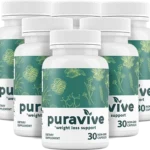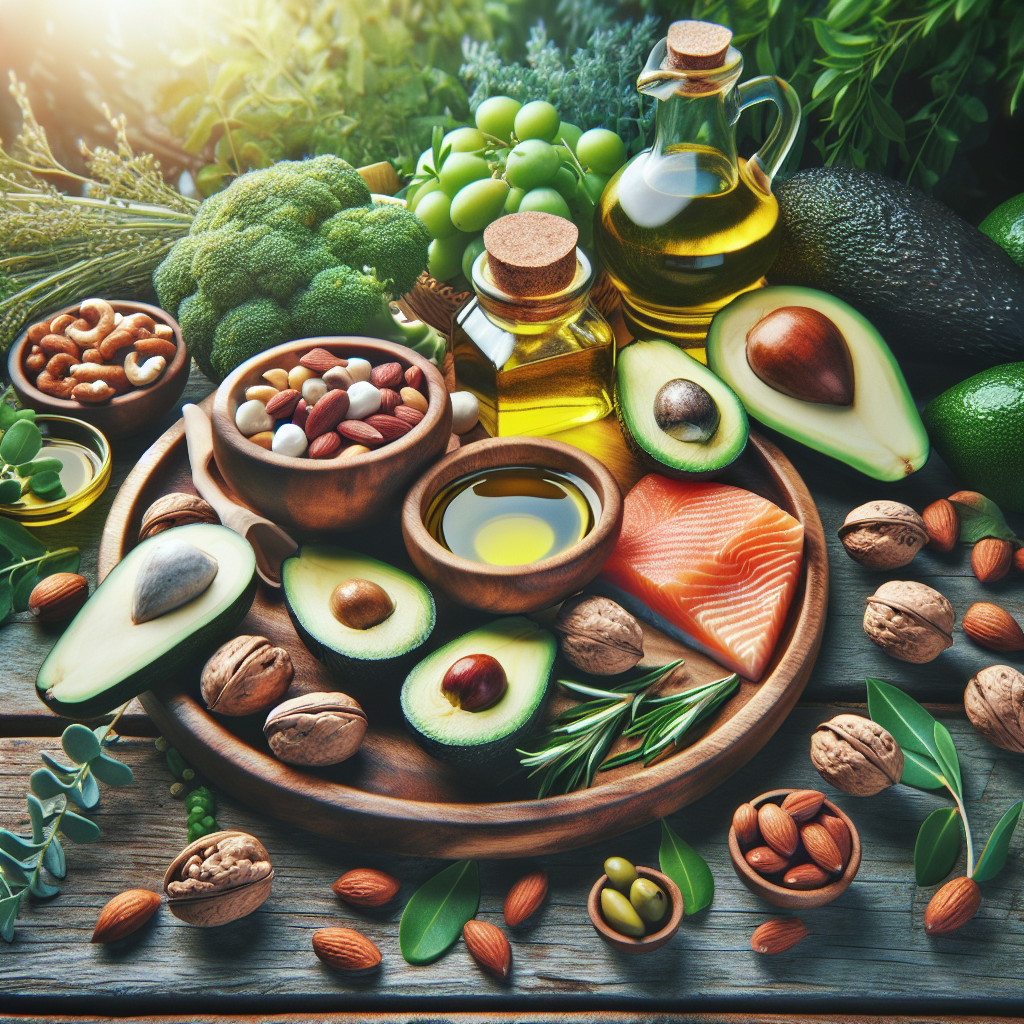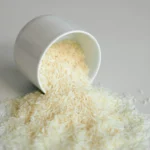Looking to improve your overall health through nutrition? Wondering what a balanced diet should include? Look no further than healthy fats. Incorporating healthy fats into your diet can have numerous benefits, such as improving heart health, boosting brain function, and supporting weight management. But what exactly are healthy fats? And how much should you include in your diet? In this article, we will explore the answers to these questions and provide you with the information you need to make informed dietary choices that support a healthy lifestyle. So, let’s dive in and discover the world of healthy fats!

In This Article
ToggleWhat are healthy fats?
Definition of healthy fats
Healthy fats, also known as unsaturated fats, are a type of dietary fat that is considered beneficial for your overall health. Unlike unhealthy fats, healthy fats can provide essential nutrients, promote heart health, support brain function, aid in weight management, and help with nutrient absorption.
Types of healthy fats
There are two main types of healthy fats: monounsaturated fats and polyunsaturated fats.
Monounsaturated fats
Monounsaturated fats are liquid at room temperature and can have a positive impact on your health. They are found in foods like avocados, nuts, and olive oil. Consuming monounsaturated fats in moderation can help reduce bad cholesterol levels and lower the risk of heart disease.
Polyunsaturated fats
Polyunsaturated fats are also liquid at room temperature and can provide numerous health benefits. They are mainly found in fatty fish, flaxseeds, and walnuts. Polyunsaturated fats contain essential omega-3 and omega-6 fatty acids, which are crucial for brain function, reducing inflammation, and maintaining heart health.
What are the benefits of healthy fats?
1. Essential nutrients
Healthy fats are an excellent source of essential nutrients, including fat-soluble vitamins like vitamin A, D, E, and K. These vitamins are essential for maintaining overall health, supporting immune function, promoting bone health, and aiding in the absorption of other important nutrients.
2. Heart health
Incorporating healthy fats into your diet can have a positive impact on your heart health. Monounsaturated and polyunsaturated fats help lower bad cholesterol levels, known as LDL cholesterol, and reduce the risk of heart disease. These fats can also lower triglyceride levels and help maintain healthy blood pressure.
3. Brain function
Healthy fats are important for brain function and development. The omega-3 fatty acids found in fatty fish, such as salmon and mackerel, are particularly beneficial for brain health. They can improve cognitive function, support memory and learning, and reduce the risk of age-related cognitive decline.
4. Weight management
Contrary to popular belief, incorporating healthy fats into your diet can actually aid in weight management. Healthy fats can help increase feelings of satiety, reducing the likelihood of overeating and promoting weight loss. They also provide a steady source of energy, allowing you to stay satisfied and energized throughout the day.
5. Nutrient absorption
Healthy fats play a vital role in the absorption of fat-soluble vitamins and other important nutrients. These fats help your body absorb vitamins A, D, E, and K, which are essential for various bodily functions. Eating healthy fats with nutrient-rich foods can maximize the absorption and utilization of these vital nutrients.
How much healthy fats should I include in my diet?
1. Recommended daily intake
The American Heart Association recommends that healthy fats should make up 25-35% of your total daily calorie intake. For most adults, this translates to around 50-70 grams of healthy fats per day.
2. Balancing macronutrients
It is essential to strike a balance between carbohydrates, proteins, and fats in your daily diet. While healthy fats are beneficial, it is important not to overconsume them, as they are higher in calories compared to protein and carbohydrates. Balancing your macronutrients will help ensure a well-rounded and nutritious diet.
3. Individual needs and goals
The amount of healthy fats you should include in your diet may vary depending on your individual needs and goals. Factors such as age, gender, activity level, and overall health should be taken into consideration. Consulting with a healthcare professional or registered dietitian can help you determine the appropriate amount of healthy fats for your specific needs.
Which foods contain healthy fats?
1. Avocados
Avocados are packed with monounsaturated fats, which are known to be heart-healthy. They are also a good source of fiber, vitamins, and minerals. Adding avocado to your meals or using it as a spread can be a delicious and nutritious way to incorporate healthy fats into your diet.
2. Nuts and seeds
Nuts and seeds, such as almonds, walnuts, and chia seeds, are rich in healthy fats, protein, fiber, vitamins, and minerals. They can be enjoyed as a snack or added to salads, smoothies, or oatmeal for a nutritious boost.
3. Fatty fish
Fatty fish, including salmon, trout, and sardines, are excellent sources of omega-3 fatty acids. These fatty acids have numerous health benefits, including reducing inflammation, improving heart health, and supporting brain function. Aim to incorporate fatty fish into your diet at least twice a week for optimal benefits.
4. Olive oil
Olive oil is a staple of the Mediterranean diet and is rich in monounsaturated fats. It is a healthier alternative to traditional cooking oils and can be used for sautéing, dressing salads, or drizzling over cooked vegetables.
5. Coconut oil
Coconut oil contains saturated fats but also contains medium-chain triglycerides (MCTs), which are considered beneficial fats. It can be used in moderation for cooking, baking, or added to smoothies for a flavor boost.
6. Whole eggs
Eggs are a great source of healthy fats and high-quality protein. Contrary to previous beliefs, the cholesterol in eggs does not significantly contribute to cholesterol levels in most individuals. Including whole eggs in your diet can provide essential nutrients and healthy fats.
7. Dark chocolate
Dark chocolate with a high cocoa content contains monounsaturated and polyunsaturated fats. It is also rich in antioxidants, which have numerous health benefits. Enjoying a small piece of dark chocolate can satisfy your sweet tooth while providing a dose of healthy fats.
8. Chia seeds
Chia seeds are a nutrient-dense food that is rich in omega-3 fatty acids, fiber, protein, and various vitamins and minerals. They can be added to smoothies, yogurt, or used as an egg substitute in baking recipes.
9. Flaxseeds
Flaxseeds are another excellent source of omega-3 fatty acids and fiber. They can be ground and added to smoothies, cereals, or used as an egg substitute in baking recipes.
10. Cheese
Cheese is a delicious source of healthy fats, protein, and calcium. Opt for varieties like feta, mozzarella, or goat cheese, which are lower in saturated fats compared to other types of cheese.
How to incorporate healthy fats into your diet?
1. Cooking with oils
Using healthier cooking oils, such as olive oil or coconut oil, can be an easy way to incorporate healthy fats into your diet. Use these oils for sautéing vegetables, dressing salads, or marinating meats.
2. Adding nuts and seeds to meals
Sprinkle a handful of nuts or seeds on top of salads, oatmeal, or yogurt for an added crunch and dose of healthy fats. You can also enjoy them as a snack on their own.
3. Including fatty fish in your diet
Incorporate fatty fish, such as salmon or trout, into your meals at least twice a week. You can bake, grill, or poach them for a delicious and nutritious source of healthy fats.
4. Using avocados as spreads or toppings
Replace mayonnaise or butter with mashed avocado as a spread for sandwiches or as a topping for toast. Avocado can also be added to smoothies for a creamy texture and additional nutrients.
5. Incorporating eggs into your meals
Prepare omelets, frittatas, or scrambled eggs with vegetables for a hearty and healthy meal. Eggs can also be hard-boiled and enjoyed as a protein-rich snack.
6. Enjoying dark chocolate in moderation
Indulge in a piece of dark chocolate with a high cocoa content as a healthier alternative to sugary desserts. The richness of dark chocolate can satisfy your sweet cravings while providing a dose of healthy fats and antioxidants.
7. Using cheese as a source of healthy fats
Incorporate cheese into your meals as a source of healthy fats, protein, and calcium. Sprinkle grated cheese on top of salads, add slices to sandwiches, or enjoy as a snack with whole-grain crackers.
What are unhealthy fats to avoid?
1. Saturated fats
Saturated fats are primarily found in animal products and tropical oils like coconut oil and palm oil. Consuming too much saturated fat can increase bad cholesterol levels and the risk of heart disease. Limit your intake of foods like fatty cuts of meat, full-fat dairy products, and processed snacks that are high in saturated fats.
2. Trans fats
Trans fats are artificially created fats that are commonly found in processed foods, baked goods, and fried foods. They raise bad cholesterol levels, lower good cholesterol levels, and increase the risk of heart disease. Always check food labels and avoid products that contain trans fats or hydrogenated oils.
3. Hydrogenated oils
Hydrogenated oils are a type of trans fat that is created through a process called hydrogenation. They are often found in processed foods, margarine, and fried snacks. These oils can be extremely harmful to your health, so it is best to avoid them altogether.
How do healthy fats differ from unhealthy fats?
1. Nutritional composition
Healthy fats, such as monounsaturated and polyunsaturated fats, provide essential nutrients like vitamins and minerals. Unhealthy fats, such as saturated fats and trans fats, offer little to no nutritional value and can be detrimental to your health when consumed in excess.
2. Impact on health
Healthy fats have numerous health benefits, including supporting heart health, brain function, and weight management. Unhealthy fats, on the other hand, can increase the risk of heart disease, raise bad cholesterol levels, and contribute to weight gain.
Can healthy fats help with weight loss?
1. Role of healthy fats in satiety
Healthy fats can play a crucial role in weight loss by promoting feelings of fullness and satiety. Including sources of healthy fats in your meals can help you stay satisfied for longer periods, reducing the likelihood of overeating or snacking on unhealthy foods.
2. Energy-dense but filling
Although healthy fats are more calorie-dense compared to proteins and carbohydrates, they can still aid in weight loss. Healthy fats provide a concentrated source of energy, which can keep you feeling fuller for longer and prevent excessive calorie intake.
3. Supporting a balanced diet
Incorporating healthy fats into your diet promotes overall balance and variety. A well-rounded diet that includes all macronutrients, including healthy fats, can support sustainable weight loss and overall health.
Are there any risks associated with consuming healthy fats?
1. Caloric density
Healthy fats are more calorie-dense compared to proteins and carbohydrates. While they can be beneficial in moderate amounts, excessive consumption of healthy fats can lead to weight gain or hinder weight loss efforts. It’s important to consume healthy fats in moderation and balance them with the rest of your diet.
2. Counteracting the benefits
Although healthy fats offer numerous health benefits, consuming them in conjunction with an unhealthy overall diet can negate those benefits. It’s crucial to focus on a well-rounded and balanced diet that includes a variety of nutrient-dense foods in addition to healthy fats.
3. Individual considerations
Individuals with certain health conditions, such as pancreatitis or gallbladder disease, may need to limit their intake of fats, including healthy fats. It’s important to consult with a healthcare professional or registered dietitian to determine the best approach for your individual health needs.
Conclusion
Incorporating healthy fats into your diet is essential for your overall health and well-being. These fats provide essential nutrients, support heart health, promote brain function, aid in weight management, and help with nutrient absorption. By including foods like avocados, nuts and seeds, fatty fish, olive oil, and eggs in your diet, you can enjoy the benefits of healthy fats while maintaining a well-rounded and nutritious eating plan. Remember to avoid unhealthy fats, such as saturated fats and trans fats, and seek professional guidance to personalize your diet based on your individual needs and goals. With a balanced approach and moderation, healthy fats can enhance your diet and contribute to a healthier lifestyle.
Related posts:
 What are the best sources of protein for a healthy diet?
What are the best sources of protein for a healthy diet?
 What are simple ways to reduce sugar in my diet?
What are simple ways to reduce sugar in my diet?
 What’s The Best Diet For My Fitness Goals?
What’s The Best Diet For My Fitness Goals?
 What are the benefits of eating organic foods?
What are the benefits of eating organic foods?
 Puravive Review Revealed: How This New Supplement Is Changing the Game in Healthy Weight Management
Puravive Review Revealed: How This New Supplement Is Changing the Game in Healthy Weight Management
 What is the appropriate calorie intake for maintaining my weight?
What is the appropriate calorie intake for maintaining my weight?








No comment yet, add your voice below!